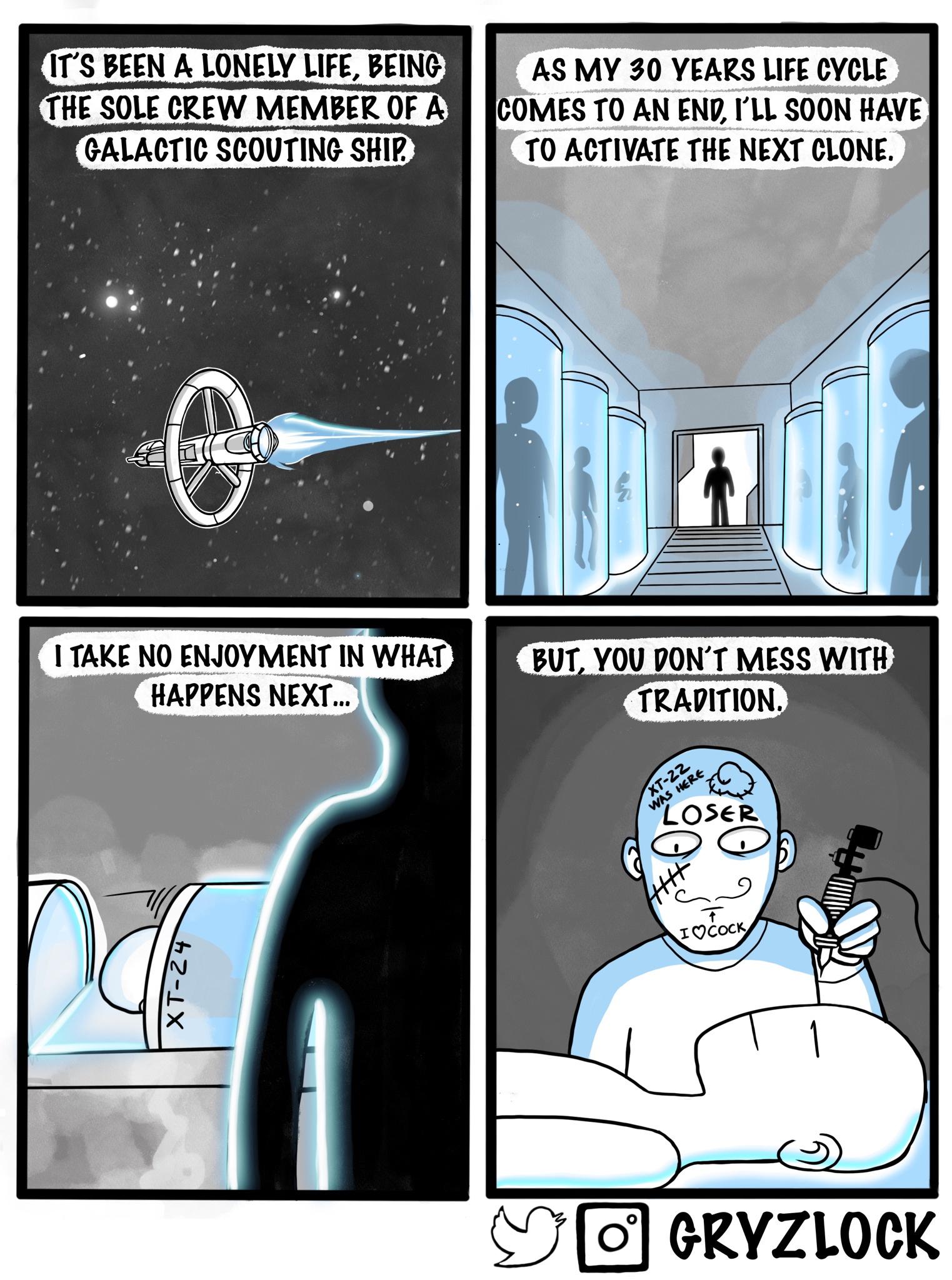this post was submitted on 16 Nov 2024
1109 points (98.7% liked)
Comic Strips
16563 readers
2234 users here now
Comic Strips is a community for those who love comic stories.
The rules are simple:
- The post can be a single image, an image gallery, or a link to a specific comic hosted on another site (the author's website, for instance).
- The comic must be a complete story.
- If it is an external link, it must be to a specific story, not to the root of the site.
- You may post comics from others or your own.
- If you are posting a comic of your own, a maximum of one per week is allowed (I know, your comics are great, but this rule helps avoid spam).
- The comic can be in any language, but if it's not in English, OP must include an English translation in the post's 'body' field (note: you don't need to select a specific language when posting a comic).
- Politeness.
- Adult content is not allowed. This community aims to be fun for people of all ages.
Web of links
- [email protected]: "I use Arch btw"
- [email protected]: memes (you don't say!)
founded 2 years ago
MODERATORS
you are viewing a single comment's thread
view the rest of the comments
view the rest of the comments

I guess you are unfamiliar with iatrogenics. A good example is the case of Semmelweis, who discovered that pregnant women were dying at higher rates IN THE HOSPOTAL compared to births at home.
The reason wasn't known before. But turned out the doctors didn't wash their hands between autopsy and delivering babies.
Oops!
And now, the risk of the child dying during childbirth is twice as likely if the birth happens in homes instead of happening in hospitals. Almost like discovery of germs and development of antiseptics had consequences. Those pesky doctors must be tracking those homeborn children down and eliminating them in the name of science! Oops!
Science is good but most often incorrect or incomplete. Otherwise our current science wouldnt have disproved the old.
If you are unvilling to admit that human hubris is just as well capable of much harm through science like of which we had 200 years ago or just 100 then drink from lead pipes, paint with radium and do some bloodletting. Those were perfectly 'safe' at the time, right?
What will we think of todays acceptables tomorrow?
There was no "science" done to prove that washing hands had effect on mortality, until someone tested that and found that to be the case. So it's not "old science" vs "new science" but rather "no science" vs "science". Lead was used because it was available. Radium was used because it was pretty. Bloodletting was considered helpful strictly because of tradition of bloodletting and because no one done the rigorous testing with valid methodology to check if it actually works, or if it's just a folk belief that it does.
You keep presenting cases where people just didn't know something and didn't care to figure it out, and call it "science" because someone baselessly believed in it. It's irrational. And before you start anew with ignoring my arguments and listing more cases of people not knowing something as a proof that scientific process is harmful, I seriously don't care. I originally commented about traditions being bad reasons for doing anything with the assumption we have some common ground in our understanding of how science work, and trying to convice someone that science does work is a fair bit too tall of a task to engage with. I'm not interested in that, sorry.
That's curiously a lot of text for someone not caring.
The scientific process is not harmful. If that's your conclusion then welp.
What's harmful is the blind belief in science. It is skepticism and exploration that brings new understanding.
But just because we label something science it can still be quack.
And it's easy for you to dismiss old science because you have the current age's perspective.
Evaluate each era on its own terms.
And once again science does work, otherwise we wouldnt pursue it. But the zelous blind faith in science is unscientific to say the least.